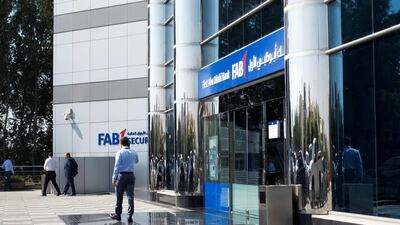Three years of intense funding pressure for banks in the Arabian Gulf region has largely eased and financial institutions stand to benefit from the oil price recovery that has bolstered income for the governments in the energy-dependent regional economies.
"We expect the GCC banks to benefit from continued deposit growth over the coming quarters, driven mainly by government deposits as their oil revenues improve and they tap international markets to fund their budget deficits," Ashraf Madani, a vice president and senior analyst at Moody's Investors Service, said in a report on Wednesday.
Governments in the six-nation economic bloc of GCC, which is home to about a third of the world’s proven oil reserves, rely heavily on the sale of hydrocarbons for revenues. They struggled to maintain economic growth and bridge budget deficits in the wake of three-year oil slump. Most of the sovereigns resorted to drawing down on their foreign reserves and deposits in the local banks to meet the shortfalls which put the banking system under immense pressure.
However, the price of oil, which plunged from the mid-2014 peak of $115 a barrel to $26 a barrel in January 2016, has recovered well which has helped the finances of the Gulf states. The Brent crude oil price averaged $43.5 a barrel in 2016 and $54.3 in 2017. Prices, which currently hover around $70 a barrel, are still below the budget breakeven for most GCC states, who have subsequently turned to international debt markets for their funding needs.
Total new GCC debt issuance in 2018 is forecast at $80 billion, majority of which will be sovereign. This compares to last year’s issuances of $90bn, according to fund manager Franklin Templeton Investments. Saudi Arabia is set to raise $11bn with a triple-tranche dollar bond, Riyadh’s fourth international public bond sale after it began selling international sovereign bonds in 2016 with the emerging market record of $17.5bn deal.
_____________
Read more:
GCC debt issuance to drop to $80bn in 2018, says Franklin Templeton
Saudi Arabia re-taps 10bn riyal October domestic sukuk issue
_____________
Oman, Bahrain, UAE and Kuwait have also tapped the markets with multi-billion dollars deals in recent years that have reduced stress on lenders in the region. Governments are a major contributor to bank deposits in the GCC, representing more than 30 per cent of deposits in some systems, according to Moody’s report.
GCC banks' liquidity will be further supported by expected average credit growth of around 5 per cent in the region,” the report said. “Increased government deposits should continue to support a stable loan to deposit ratio for GCC banks.”
However, despite improved liquidity, funding costs will rise for the financial institutions in the region due to rising interest rates. Over the past years, GCC benchmark interest rates have risen in line with US Federal Reserve rate increases and subsequent moves by local central banks. Moody's expects benchmark rates to continue their upward trajectory in line with the Fed moves.
“Rising interest rates will support net interest margins and will benefit banking systems with the highest current and saving accounts (CASA), particularly Saudi Arabia,” Moody’s noted. “Despite increasing funding costs, banks will be able to raise rates on their corporate loans and will benefit from the higher spread to be earned on CASAs.”


